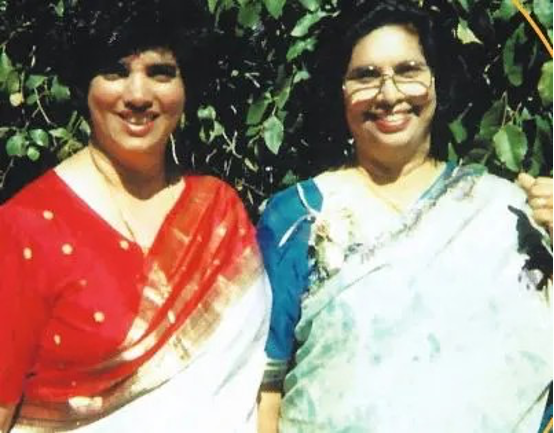
for the canonization of St. Joseph Vaz.
January 16 is the Feast of St. Joseph (Naik) Vaz, who was born in Goa, India, and served as a missionary under persecution in Mangalore, Kanara, and in Sri Lanka in the 17th Century. He was canonized in 2015 by Pope Francis.
This is the story of how a Catholic family in the Diocese of Oakland in California, US, figured prominently in his canonization.
In 1978, my sister Maria Ligia Britto and I, immigrants in Berkeley and El Cerrito whose family was originally from Goa, India, were discussing why Goa still had no canonised saints after almost five centuries of Catholicism in the former Portuguese colony in India— especially since the Cause of then-Venerable Father Joseph Vaz had been started in 1713.
In the 15th century, the Portuguese sailed eastward to find the fabulous riches of India. In 1498, the Portuguese admiral Vasco da Gama landed in India. In 1510, the Portuguese admiral Afonso de Albuquerque conquered
Goa on the southwest coast of India from Adil Shah, the Muslim ruler. It was Portugal’s first colony and outpost in India and later for its entire spice empire in Asia.
The Portuguese also established Goa as the missionary capital of their empire.
Franciscan missionaries were brought on their first sailing vessels to establish the Catholic faith. They made the first conversions in Goa, building the Portuguese-style churches and convents that one can still see in Old Goa and other parts of Goa.
Later, the Portuguese brought the Dominicans and Jesuits to Goa. The famous St. Francis Xavier came to Goa for a very short period and went on to other Portuguese territories to preach the Gospel in their Asian outposts.
But little is heard that, early on, the Goan converts asked to have a native clergy that later did much of the missionary work in Asia and Africa. The European missionaries were reluctant to establish a native clergy, but the king of Portugal financed the building of the College of St. Paul, a seminary for their education.
St. Joseph (Naik) Vaz was one of these native Indian missionaries. He successfully evangelised the territories the Portuguese lost to Dutch conquest in India and Ceylon. The Dutch were Calvinists who persecuted the Catholic converts made by the Portuguese and banned all priests and missionaries from entering those areas.
Why no native Indian saints?
Many Goans, like our family, wondered why, in 1978, there wasn’t a single canonised Indian saint from Goa or any other part of India where Catholicism had spread. They decided to engage themselves in the Cause of then- Venerable Father Joseph Vaz, who went to Ceylon from Goa in 1687 to minister to the abandoned Catholics under Dutch Calvinist persecution in Ceylon. His Cause had been stalled at the Vatican for almost 300 years.
Getting the attention and approval of the Pope
To preserve the memory of St. Joseph Vaz and support his Cause, Maria Ligia and I began the tradition of yearly Feast Masses in the Diocese of Oakland in 1978. At first, this was in our homes and the homes of supporters of the idea of making a Goan saint. Later, Masses were organised in churches in San Francisco, Berkeley, Oakland, other East Bay cities, and the Graduate Theological Union in Berkeley.
We collected signatures for petitions to three popes, Pope St. John Paul 11, Pope Benedict and Pope Francis, expressing the interest of Indian, Pakistani and Sri Lankan Catholics around the world for action on his Cause.
In 2014, we took a petition to Rome. The postulator, Father Thomas Klosterkamp, OMI, said that at that juncture, the pope decided that the Causes had sat without action for far too long—three centuries—of a very great saint who worked under persecution.
He asked for proof that there was international devotion to Blessed Joseph Vaz so that he could canonize him without the need of a final miracle, as was done in the case of Pope St. John Paul XXIII. His Holiness said that devotion in Goa and Sri Lanka was not sufficient for such a canonization.
The record of the work and history of petitions by the Joseph Naik Vaz Institute throughout the world in the two Postio Historicas (official documents for the Cause) were submitted to Pope Francis as proof of international devotion. Pope Francis accepted it and canonised St. Joseph Vaz, Apostle of Sri Lanka, in 2015 in Colombo, Sri Lanka.
We invite you to come to our 46th annual feast of St. Joseph Naik of India and Sri Lanka.
The celebration will be at the 11 a.m. Jan. 28 Mass at Cathedral of Christ the Light.
Our theme of the program on the life and work of St. Joseph (Naik) Vaz in the Parish Hall after Mass will be for Inter-religious Peace and Reconciliation in memory of the protection from Dutch persecution given to him by the non-Christian Buddhist Kings of Kandy.
We will also be remembering our six African American candidates for the sainthood. While ministering to the persecuted Catholics, St. Joseph (Naik) Vaz also ministered to the African slaves and their descendants in Sri Lanka.
Call or text 510.325.1803 or email[email protected] to make a reservation for the program.
Joseph Naik Vaz Institute www.josephnaikvaz.org
Filomena Saraswati Giese is the president and founder of Joseph Sri Naik Vaz Institute in Berkeley.
Published on 16 January 2024 in https://www.indiancatholicmatters.org/st-joseph-vaz-how-two-sisters-from-oakland-diocese-aided-the-missionary-from-goas-centuries-old-cause-for-sainthood/
